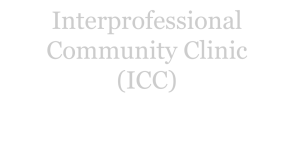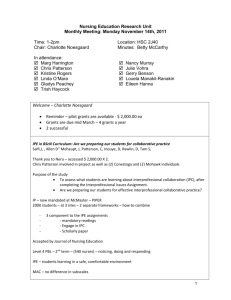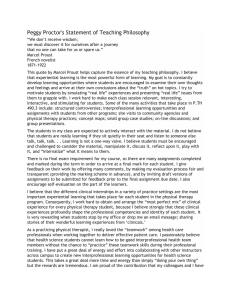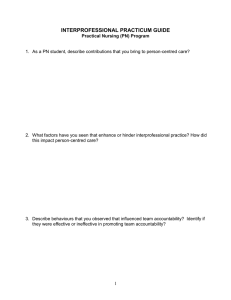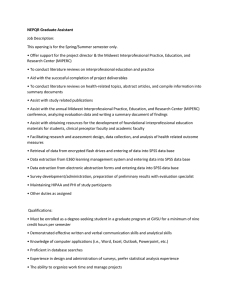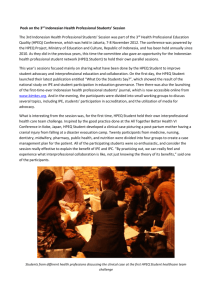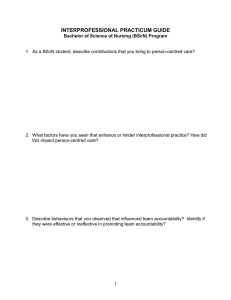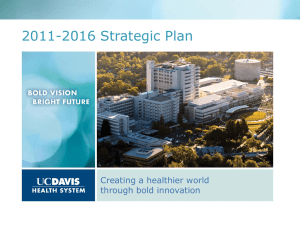College of Public Health and Health Professions 3 1225 Center Drive
advertisement
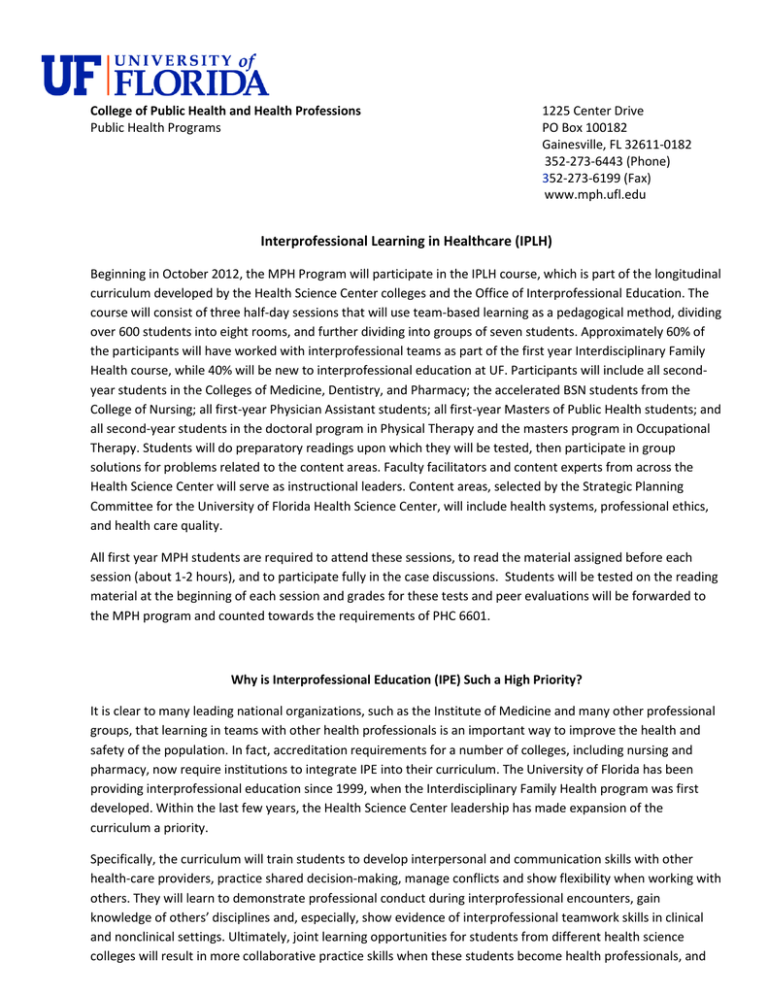
College of Public Health and Health Professions Public Health Programs 1225 Center Drive PO Box 100182 Gainesville, FL 32611-0182 352-273-6443 (Phone) 352-273-6199 (Fax) www.mph.ufl.edu Interprofessional Learning in Healthcare (IPLH) Beginning in October 2012, the MPH Program will participate in the IPLH course, which is part of the longitudinal curriculum developed by the Health Science Center colleges and the Office of Interprofessional Education. The course will consist of three half-day sessions that will use team-based learning as a pedagogical method, dividing over 600 students into eight rooms, and further dividing into groups of seven students. Approximately 60% of the participants will have worked with interprofessional teams as part of the first year Interdisciplinary Family Health course, while 40% will be new to interprofessional education at UF. Participants will include all secondyear students in the Colleges of Medicine, Dentistry, and Pharmacy; the accelerated BSN students from the College of Nursing; all first-year Physician Assistant students; all first-year Masters of Public Health students; and all second-year students in the doctoral program in Physical Therapy and the masters program in Occupational Therapy. Students will do preparatory readings upon which they will be tested, then participate in group solutions for problems related to the content areas. Faculty facilitators and content experts from across the Health Science Center will serve as instructional leaders. Content areas, selected by the Strategic Planning Committee for the University of Florida Health Science Center, will include health systems, professional ethics, and health care quality. All first year MPH students are required to attend these sessions, to read the material assigned before each session (about 1-2 hours), and to participate fully in the case discussions. Students will be tested on the reading material at the beginning of each session and grades for these tests and peer evaluations will be forwarded to the MPH program and counted towards the requirements of PHC 6601. Why is Interprofessional Education (IPE) Such a High Priority? It is clear to many leading national organizations, such as the Institute of Medicine and many other professional groups, that learning in teams with other health professionals is an important way to improve the health and safety of the population. In fact, accreditation requirements for a number of colleges, including nursing and pharmacy, now require institutions to integrate IPE into their curriculum. The University of Florida has been providing interprofessional education since 1999, when the Interdisciplinary Family Health program was first developed. Within the last few years, the Health Science Center leadership has made expansion of the curriculum a priority. Specifically, the curriculum will train students to develop interpersonal and communication skills with other health-care providers, practice shared decision-making, manage conflicts and show flexibility when working with others. They will learn to demonstrate professional conduct during interprofessional encounters, gain knowledge of others’ disciplines and, especially, show evidence of interprofessional teamwork skills in clinical and nonclinical settings. Ultimately, joint learning opportunities for students from different health science colleges will result in more collaborative practice skills when these students become health professionals, and this in turn will lead to higher quality, safer clinical care. This will be accomplished by determining a set of common required interprofessional competencies for all colleges, and then by providing learning opportunities, both required and elective, to meet those competencies for all our Health Science Center students. For more information about the interprofessional experiences at the University of Florida Health Science Center, please visit our website at: http://education.health.ufl.edu/ Sessions will be held 1-4PM in the Reitz Union on the following dates: October 30: Quality and Safety January 22: Professional Ethics and Roles February 26: Health Systems and Inequalities The Foundation for The Gator Nation An Equal Opportunity Institution
